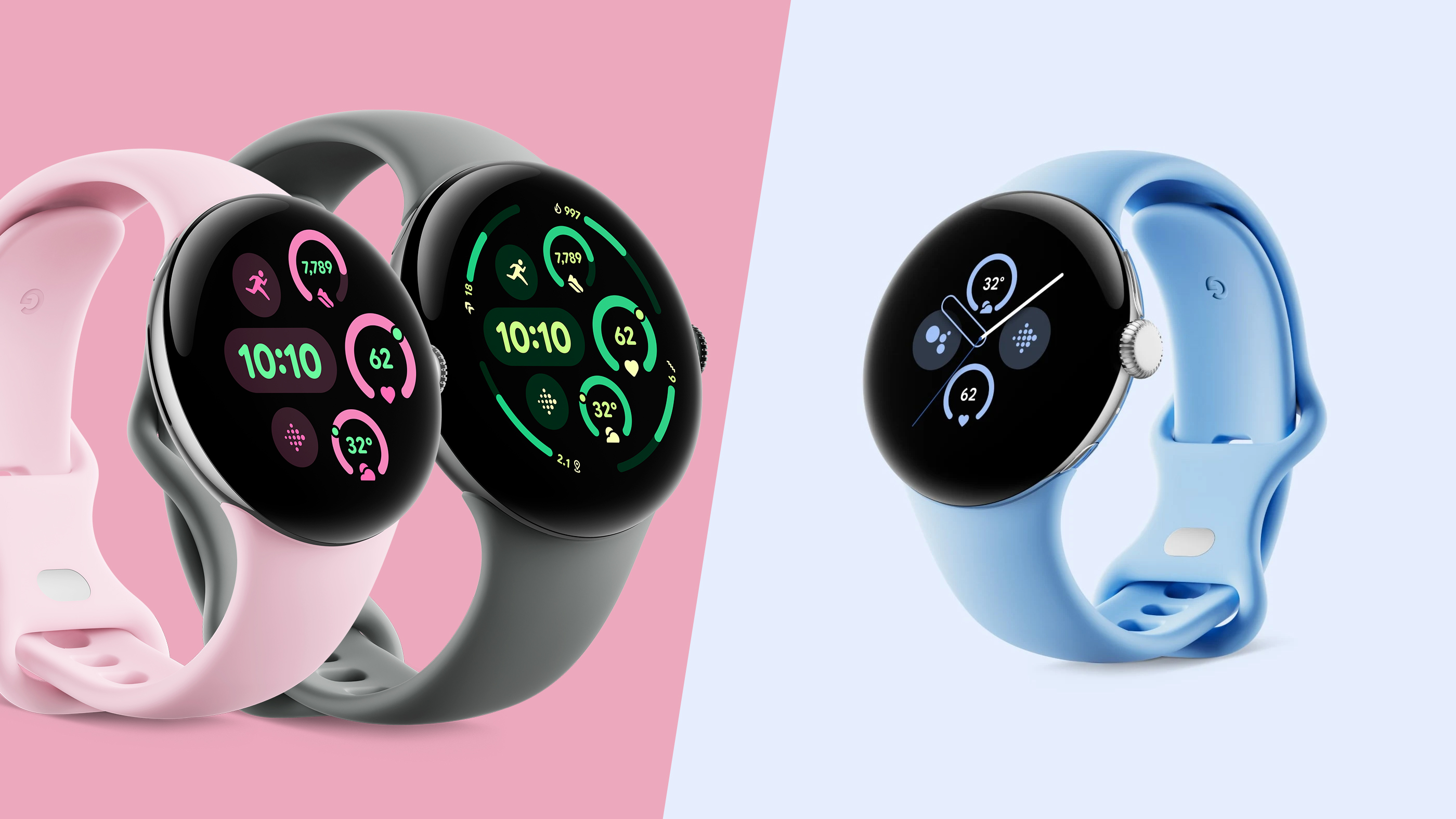
Google’s August 13 Made by Google Pixel hardware event wasn’t exactly filled with surprises – considering the deluge of leaks and the company’s own teases in the weeks leading up to it – but that didn’t stop us from being dazzled by the exciting new slew of Pixel-branded hardware that was served up on stage, particularly one… actually, make it two new smartwatches.
Alongside improvements to the company’s Gemini AI offerings, four new phones in the Pixel 9 series (check out our hands-on Pixel 9 review, Pixel 9 Pro review, Pixel 9 Pro XL review and Pixel 9 Pro Fold review for more on those), and the new Pixel Buds Pro 2, we saw the debut of the Pixel Watch 3.
Whether you’re an existing Pixel Watch user now considering an upgrade, or you’re looking to make the move to one of Google’s most recent smartwatch generations and wondering whether it’s worth forking out the cash for this latest model, you should find your answer here.
Pixel Watch 3 vs Pixel Watch 2: Price & Availability
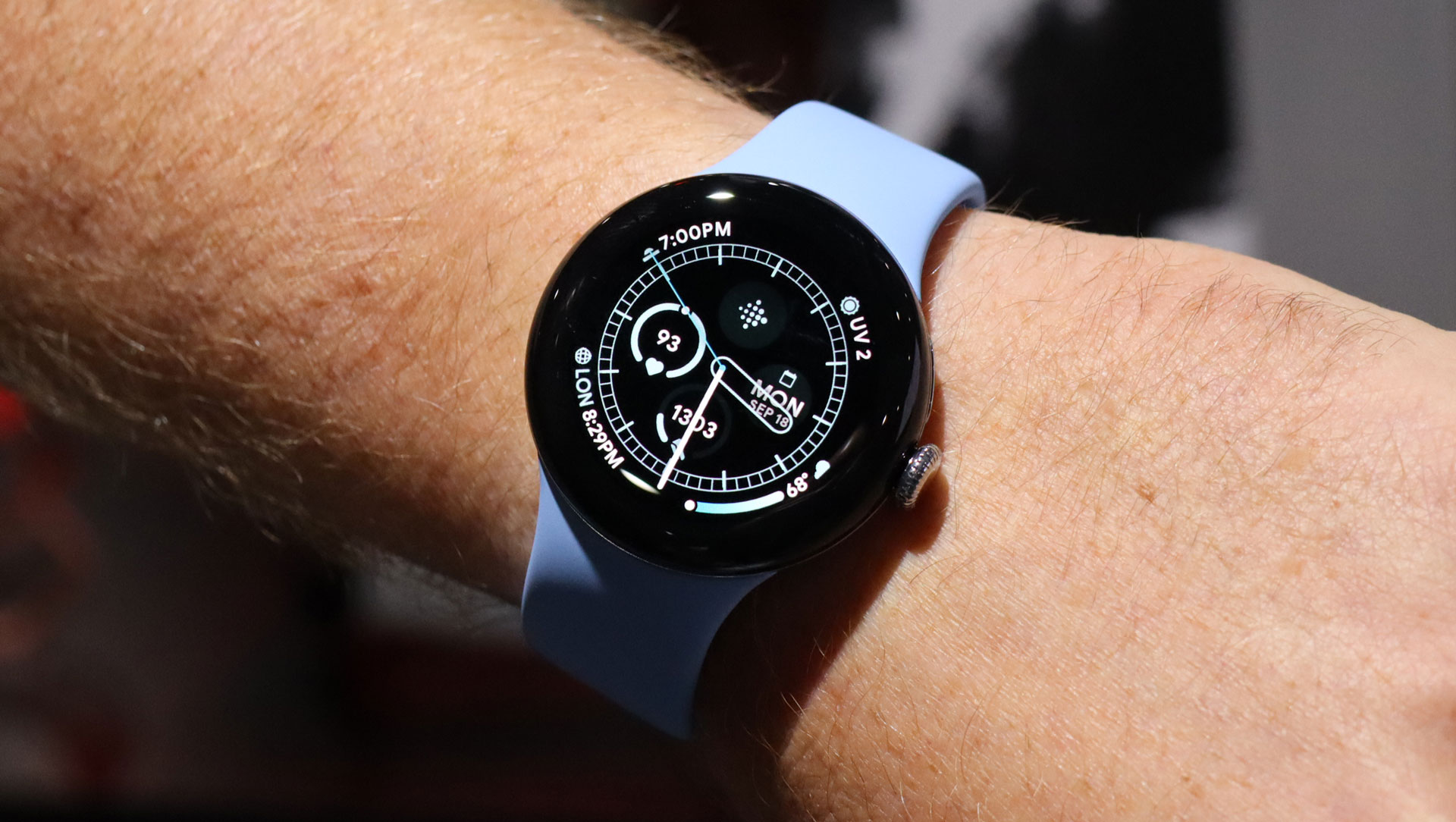
As touched on up top, the Pixel 3 is the first in the series to come in two sizes (41mm and 45mm); a long-requested element to the series that also means this generation spans more price points.
The Pixel Watch 2 arrived on October 8 last year, costing $349 / £349 / AU$549, for the WiFi-only model, while 4G LTE connectivity elevated prices to $399 / £399 / AU$649, across the US, UK and Australia, respectively.
Here’s how pricing compares today; accounting for the price cut Google has since placed on the Watch 2, now that its successor is here:
As you can see, although Google has used the Watch 2’s debut pricing as a jumping off point, the price has started to creep up on this year’s iteration. Note a AU$30 increase on the WiFi-only 41mm Pixel Watch 3 over its predecessor and a $50 / £50 / AU$100 hike, when comparing the pricing of the 4G LTE models across both generations.
When it comes to the new larger-sized 45mm Pixel Watch 3, it costs $50 / £50 / AU$90 more than the smaller 41mm variant, while 4G LTE cellular adds an extra $100 / £100 / AU$170 over the WiFi-only 45mm model.
The Pixel Watch 3 line was made available for pre-order at Google’s event on 13 August, with products scheduled to start shipping 10 September in all key markets, less than a year on from the Pixel Watch 2.
As Google still sells the Watch 2 directly, you could instead pick that up for $100 / £110 / AU$120 less than its original retail price, if you aren’t enamored by the new Watch 3’s upgrades.
- Winner: Pixel Watch 2
Pixel Watch 3 vs Pixel Watch 2: Design
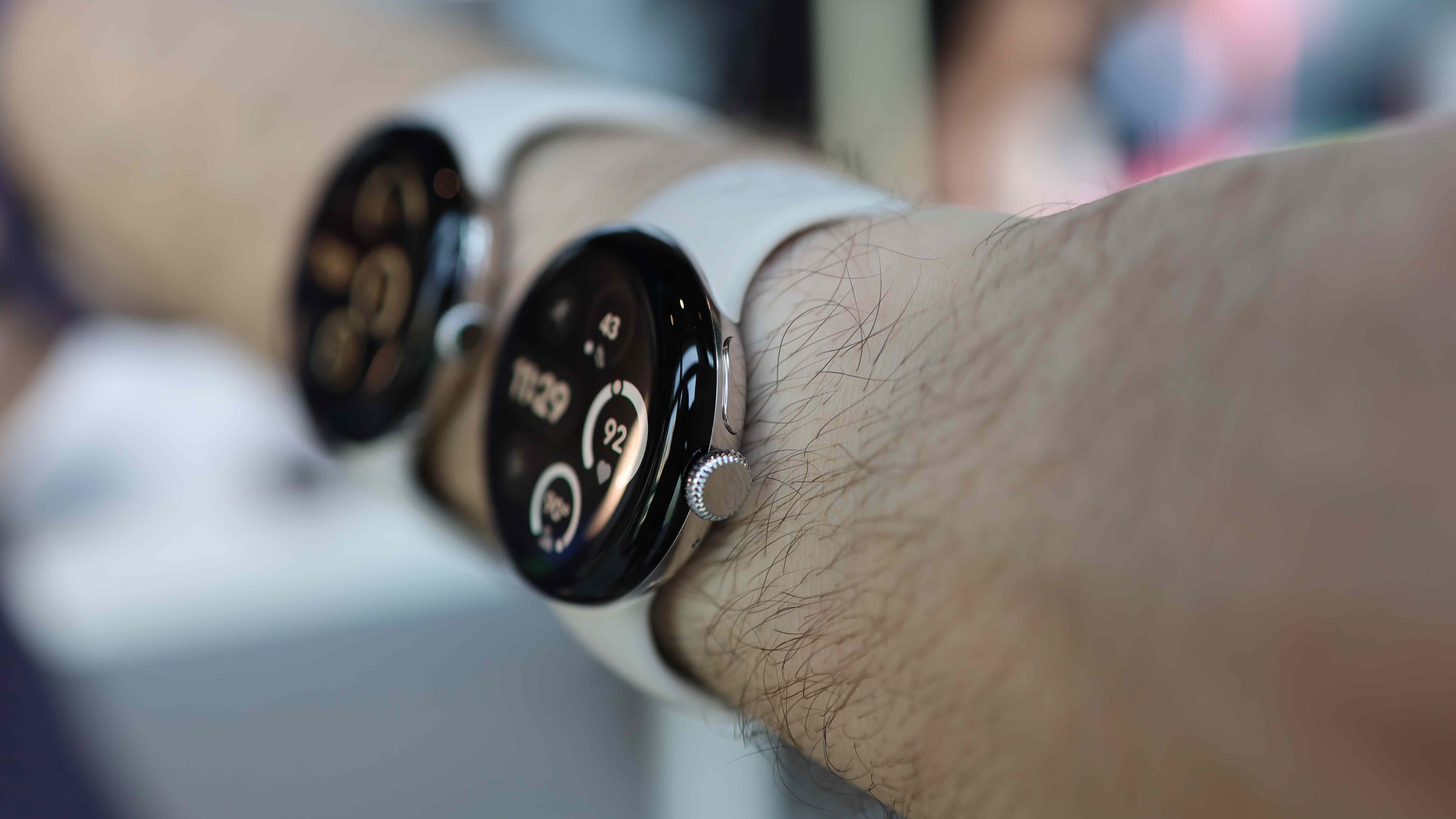
At a glance, the Pixel Watch 3’s hardware doesn’t really set itself apart from the previous generation. The same rounded pebble-shaped form, consisting of an aluminum back and a Gorilla Glass 5-protected front, with a rotating crown, proprietary user-replaceable bands, an optical heart rate monitor on the back (which Google says uses the same hardware as the Watch 2 but is more accurate thanks to a new algorithm), and an IP68-certified dust and water-resistant construction, up to 5ATM.
The elephant in the room, of course, is the new larger 45mm model. While the standard Pixel Watch 2 and Watch 3 share a 41mm body size – allowing for bands to be swapped interchangeably between generations – the new 45mm Watch 3 supports a new band size (i.e. no backwards compatibility). The Pixel Watch 2 and 41mm Watch also come in four colors, while the 45mm Watch 3 is limited to three.
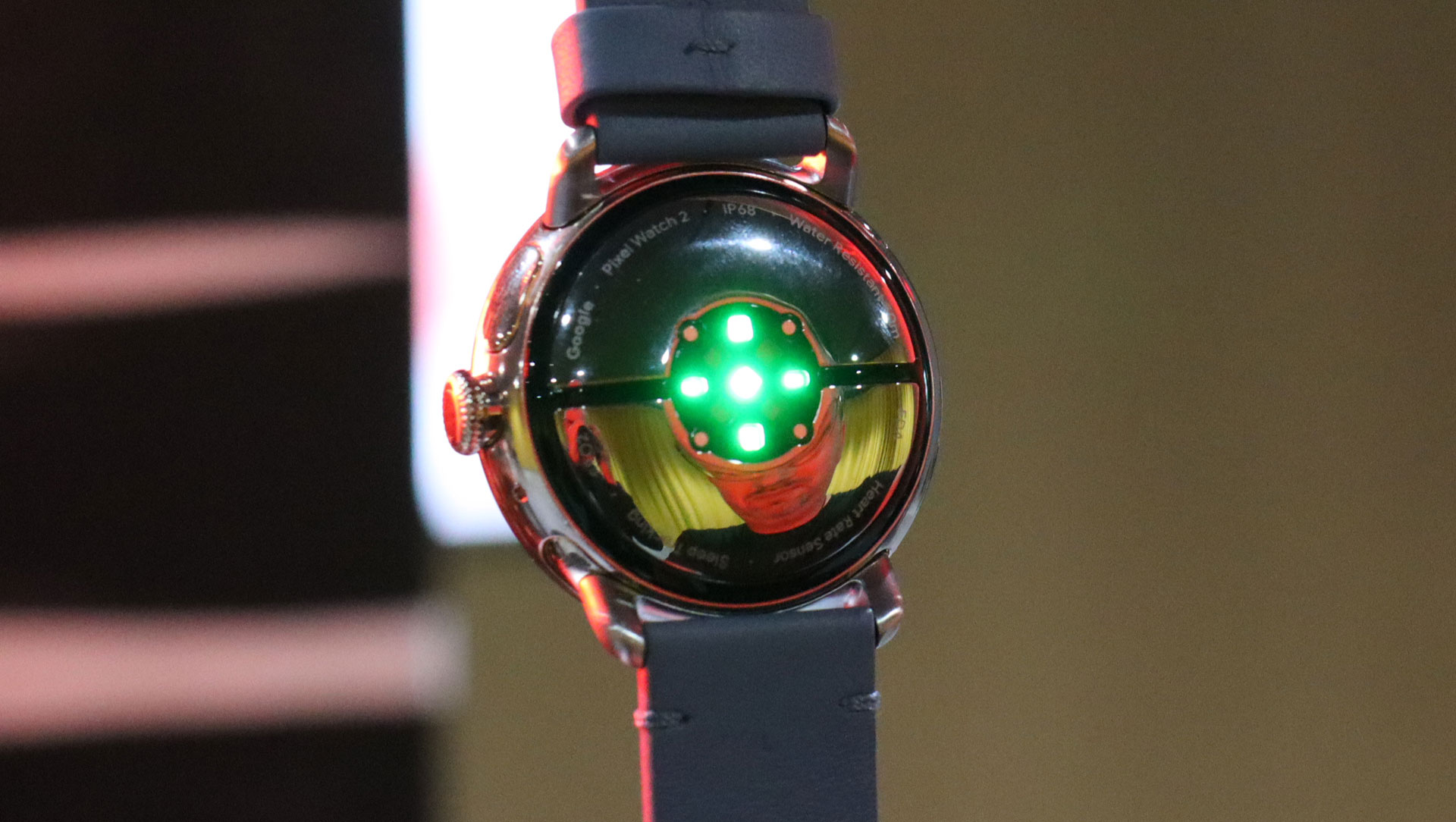
16% thinner bezels on the 41mm Watch 3 (compared to the Watch 2) mean a 10% larger display this generation, while the 45mm model gives you 40% more screen, which Google has capitalized on by serving up additional data at a glance: an extra complication on select watch faces, six shortcuts instead of three when launching an activity, and more weather data without having to scroll. You get a larger battery too, but more on that in a bit.
- Winner: Pixel Watch 3
Pixel Watch 3 vs Pixel Watch 2: Features
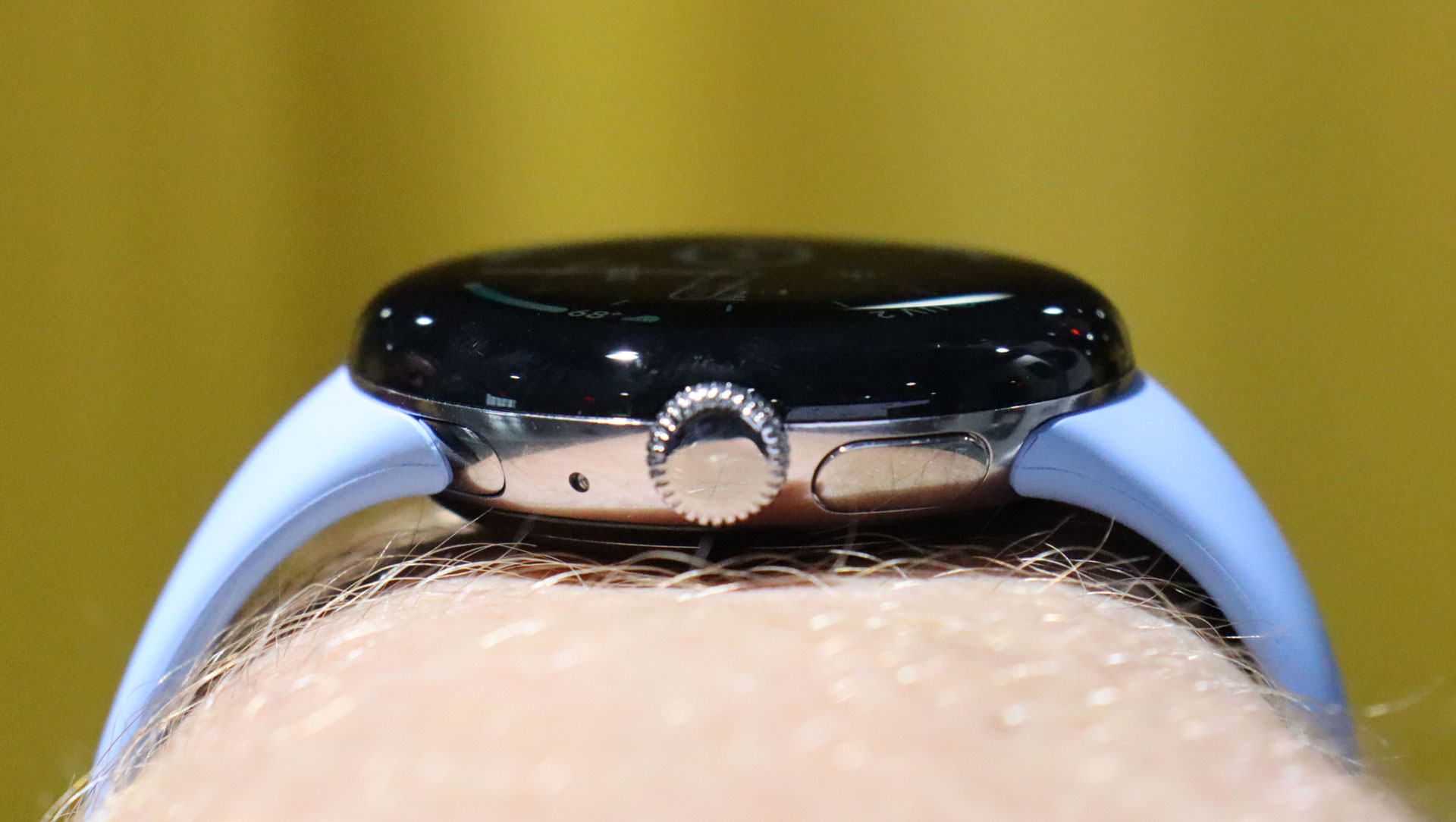
For the most part, the Pixel Watch 3 builds on the Pixel Watch 2’s existing feature set, but there’s a notable change with Fitbit Premium that Watch 3 users will no doubt appreciate. Readiness Score is no longer a Premium feature. In fact, almost all metrics collected on-device are now accessible without having to pay a subscription. It perhaps should have been this way all along, but regardless, we’re glad this is how the Pixel Watch 3 plays it.
Readiness Score, along with a new Cardio Load metric are used to serve up a Target Load, giving you an activity range to aim for each day, depending on whether you’re looking to maintain or improve your fitness; a choice fitness trackers haven’t readily offered in the past.
As part of its reworking of the Fitbit experience, while Premium users can now receive AI run-plan recommendations, all Watch 3 owners have the ability to build their own runs; setting segments based on heart rate, distance, time targets and more. Guidance is then relayed to the wearer through haptics and on-screen prompts, and a new run dashboard helps make making sense of data that much easier. You can even drill down on more detailed running metrics collected on this latest Pixel Watch, like cadence, stride length, ground contact time, vertical oscillation and vertical ratio.
On the software side, the Watch 3 also debuts media controls when running, Morning Brief – which adapts to give you the most relevant data each morning, like the weather, appointments, out-of-the-ordinary sleep, blood oxygen or HRV metrics, Google TV control on-wrist, the ability to view Nest video feeds and respond with voice, the option to pick-up and hold calls so you have time to answer on your phone, Find My Phone functionality for Pixel phones and even a new wearable version of the Pixel Recorder app.
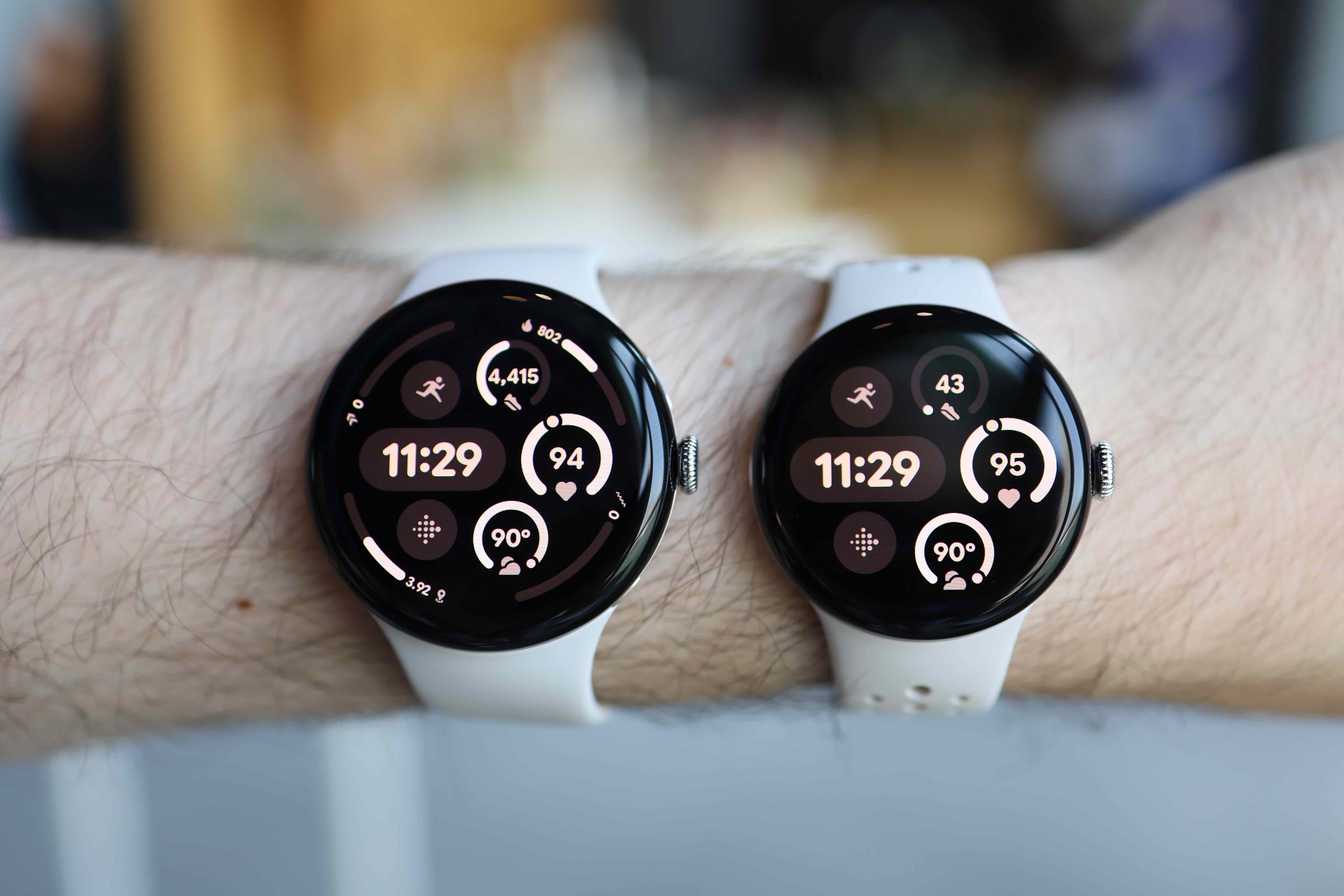
As for hardware-supported features, UWB (ultra-wideband) – previously rumored to arrive on the Pixel Watch 2 – is now part of the equation, letting you unlock your Pixel phone when in range, not to mention compatible cars from the likes of BMW and Mini at launch. Google has also ensured heart rate data can now be communicated to compatible fitness equipment from the likes of Peloton, NordicTrack and others.
A new Loss of Pulse feature has also been added this generation, which detects a lack of heart rate whilst being worn, gives the user the option to acknowledge and if no action is taken, notifies the emergency services.
What isn’t clear so close to the Pixel Watch 3’s unveiling is just how much of this new functionality will trickle down to the Pixel Watch 2. Hardware-based features like UWB support can’t be made backwards compatible, but there’s every chance that software upgrades like Morning Brief and media controls when running could be ported over to last year’s wearable; depending on if Google wants to.
- Winner: Pixel Watch 3
Pixel Watch 3 vs Pixel Watch 2: Performance & Battery Life
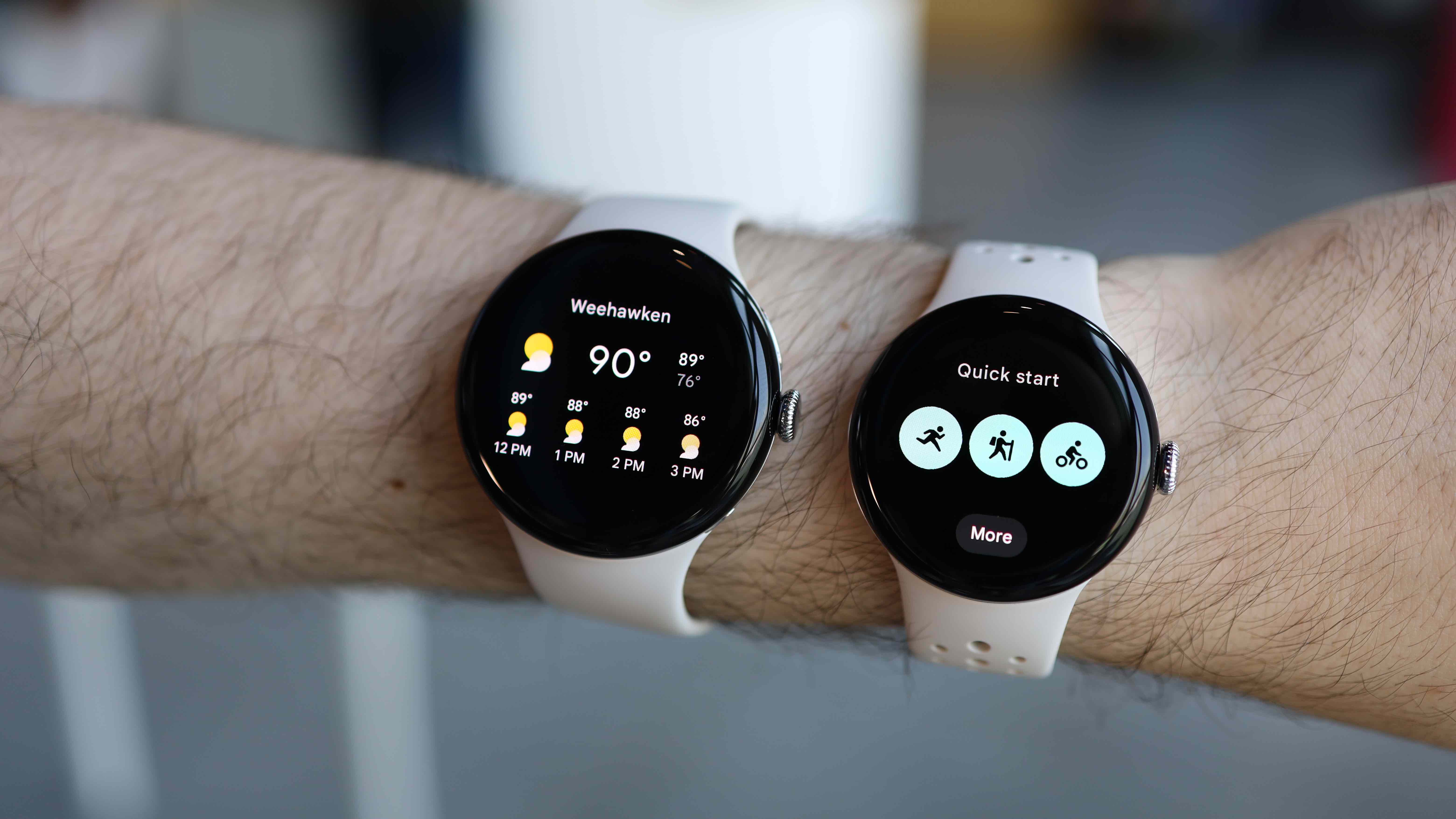
Not only are the screens on the Pixel Watch 3 series larger, they’re smarter too; so much so that Google has pinched some Pixel phone verbiage and dubbed them ‘Actua Displays’. They boast a new peak 2,000-nit brightness (that’s double the Pixel Watch 2’s), as well as the ability to drop down dimmer than any previous entry in the series; for easier low-light viewing at just 1 nit.
The move to an LTPO AMOLED panel also means the addition of a dynamic refresh rate of 1Hz to 60Hz (the Watch 2 is fixed at 60Hz), which should help improve battery life, especially when paired with its lower base brightness. What’s more, a new automatic Bedtime Mode dims the display, enables Do Not Disturb and throttles power to help with a good night’s sleep and extending battery life.
With the same dual-chip Qualcomm 5100 and Cortex M33 co-processor architecture as the Pixel Watch 2, Google isn’t quoting improved battery life in normal use; meaning the same 24-hours per charge with the AoD (always-on display) enabled. However, the new Battery Saver mode (which automatically kicks in when battery drops to below 15%) can keep the watch running for up to 36 hours on a charge, while still allowing for key health features like constant heart rate monitoring.
The 41mm Pixel Watch 3 comes with the same 306mAh capacity battery as the Pixel Watch 2, while the 45mm model has room for a more sizeable 420mAh cell (that’s 35% larger), and despite no significant gains outside of Battery Saver mode, Google has at least instilled this newest generation with approximately 20% faster charging.
The Watch 2 was quoted as reaching 50% charge in 30 minutes, 80% in 43 and 100% in 75, while the 41mm Watch 3 hits those same milestones in 24, 35 and 60 minutes, respectively. The 45mm model – with its bigger battery – takes 28, 50 and 80 minutes, in each instance.
- Winner: Pixel Watch 3
Pixel Watch 3 vs Pixel Watch 2: Conclusion
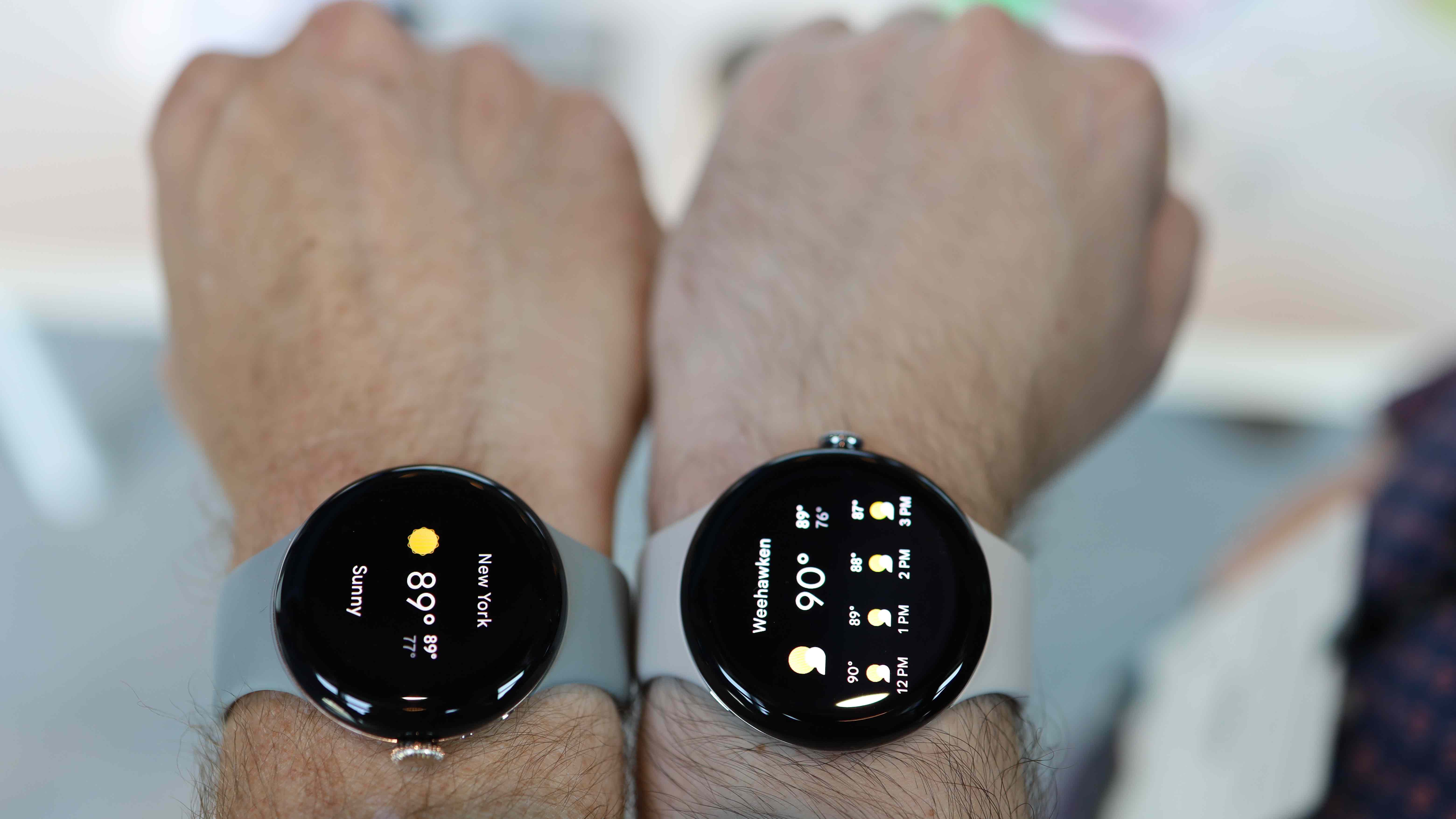
The Pixel Watch 2 wasn’t an inherently flawed smartwatch like its predecessor, so most of the improvements made to the Pixel Watch 3 series are nice-to-haves, more than essential upgrades; the exception for some being the new larger 45mm model.
Google’s renewed focus on building a more robust exercise experience – especially for runners – likely won’t go unnoticed in the fitness community, but unless the small battery and charging improvements, the brighter display or those choice new software features are additions you’ve been specifically waiting for, this latest generation of Pixel Watch doesn’t seem like an essential upgrade for existing Pixel Watch 2 owners.
For everyone else, it’s purely a matter of deciding whether you value the Watch 3’s line’s additions to the tune of $100 / £110 / AU$150, or whether the now-discounted Pixel Watch 2 still has enough to offer.







